Search IMG Library
YOUR SPECIALISM- See all
- Gastroenterology
- Microbiology
- Urology
- Rheumatology
- Stroke Medicine
- Ophthalmology
- Oncology
- Neurology
- Histopathology
- Haematology
- ENT Surgery
- Acute Medicine
- Anaesthetics
- Respiratory
- Dermatology
- Geriatrics
- Radiology
- Surgery
- Paediatrics
- Psychiatry
- Emergency Medicine
- Critical Care & ICU
- General Medicine
34 blogs found
- SECURING THE RIGHT JOB & SALARY >
- Career Structure & Pay
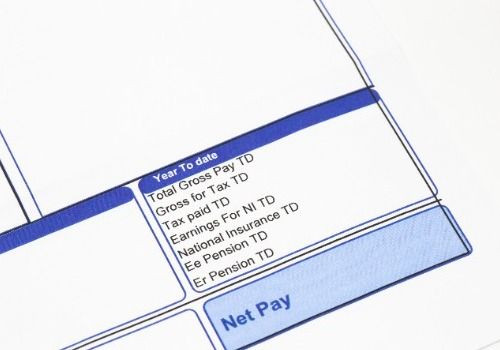
NHS Doctors in England Awarded Marginal Pay Increase
In a landmark decision, the government agreed to an increase to the pay of NHS junior and senior doctors in England, based on the recommendation of the Review Body on Doctors’ and Dentists’ Remuneration (DDRB).
This pay rise will equate to an increase of 6% for senior doctors i.e., consultants and SAS doctors, and for junior doctors, an agreed average pay increase of 6% with a one-off uplift of £1,250.
This pay increase is not only a testament to the power of the industrial action by NHS doctors over the past several months.
Whilst an acknowledgement of the efforts and hard work of NHS doctors, this pay increase fails to fully consider the rationale behind these strikes and the BMA’s calls for the UK government to fully restore pay to 2008-09 levels.
In contrast, strike action was suspended in Scotland, following a 12.4% pay offer from the Scottish government.
Whilst the Scottish pay offer is a move in the right direction, IMG Connect remains fully in support of doctors taking part in industrial action. The decision to go on strike is not taken lightly, but is a fundamental right of doctors who want to protect the NHS and its ability to provide quality care to patients and our communities, whilst also ensuring their work and wellbeing are properly valued and compensated.
Sources
https://www.gov.uk/government/news/nhs-staff-receive-pay-rise
https://www.bmj.com/content/382/bmj.p1624
For more information on working in the NHS or how this pay increase will affect you as an NHS doctor or IMG, contact us at info@imgconnect.co.uk.
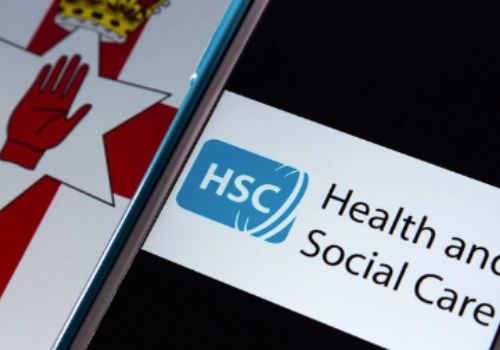
NHS Consultants - take-home pay in Northern Ireland
NHS Consultant Salary: Take-Home Pay for International Doctors in Northern Ireland
For international medical graduates (IMGs) interested in working in the NHS, understanding what an NHS consultant salary could mean as monthly take-home pay in Northern Ireland is crucial for financial planning. To help overseas doctors prepare for life in the UK, we’ve compiled examples to give you a clearer picture of what you might expect to take home each month.
How Much Will I Take Home?
In the UK, take-home pay refers to the amount deposited into your bank account after all necessary deductions have been made from your annual salary. These deductions typically include:
Income Tax
National Insurance contributions
NHS pension payments
It's important to note that these figures serve as guidelines. We’ve calculated them based on the gross salary at each pay threshold, assuming no other sources of income. Your actual take-home pay could vary depending on several factors, such as:
Additional responsibilities or extra hours worked
Other income sources
Your final tax bracket
Opting out of the NHS pension
Claiming tax-deductible expenses
Take-Home Pay Expectations in Northern Ireland
For NHS consultants and specialty doctors working in Northern Ireland, your monthly take-home pay will fluctuate based on these variables. We recommend consulting with an IMG specialist to help you better understand your potential earnings and to explore ways to maximise your income. Keep in mind that NHS pay scales can be influenced by factors like experience, job responsibilities, and the specific Trust you’re employed by.
By having a realistic understanding of your NHS consultant salary and how it translates into monthly take-home pay, you'll be better prepared for a successful career and life in the UK.
Threshold
Annual gross salary*
Estimated annual take-home pay**
Estimated monthly take-home pay**
1
£88,799
£60,533
£5,046
2
£91,581
£62,166
£5,181
3
£94,362
£63,779
£5,315
4
£97,141
£65,391
£5,449
5
£99,913
£66,999
£5,583
6
£106,520
£69,527
£5,794
7
£113,124
£72,037
£6,003
8
£119,723
£74,544
£6,212
*before tax and pension
**based on standard salary and not inclusive of additional payments for extra hours worked or pension deductions
To explore detailed information on NHS pay scales and salary conditions across all grades in the UK, check out our comprehensive series of blogs on career structure and NHS doctor pay in our IMG Resources library. These resources are designed to help international doctors understand their earning potential at various stages of their careers in the NHS.

UK Doctors’ Titles Explained
Getting to grips with the different titles given to doctors in the UK can be difficult, not least because they may differ from those used in other countries and there may be several titles to describe a certain role.
It is important for overseas doctors to have a working knowledge of the different doctor titles in the UK in order to understand how their experience may translate to the UK in terms of seniority of roles as well as the pay they may be entitled to.
In this blog we will be breaking down all the different names given to UK doctors (both in and out of training), clarifying the meaning of these terms to paint a clearer picture of designations in the NHS.
We will cover these titles within the following groups:
Doctors in Training
Doctors in non-Training Jobs
Broad Terms for UK Doctors
Doctors in Training
Doctors in GMC-approved training programmes have designations according to the period and specific year of their training – generally the abbreviation of the training, followed by a number.
Foundation Training
Other Titles / Designations: F1, F2, FY1, FY2, F3+, SHO, Junior Doctor, Trainee
These are doctors in a Foundation Programme, having graduated from medical school. In the UK, this is a 2-year programme equivalent to an internship.
During Year 1 of Foundation Training, doctors are referred to as F1/ FY1 and during Year 2, they are F2/ FY2.
Although Foundation Training lasts two years, doctors who may be unsure of which specialty to pursue may work in non-training jobs before applying to a training post. The naming structure for these roles is the same, depending on the years in their role.
Core Training
Other Titles / Designations: CT1, CT2, CT3, ST1, ST2, ST3, SHO, Junior Doctor, Trainee
These are doctors in Core Training who are at the initial stage of an ‘uncoupled’ training programme. An uncoupled training programme is one in which there is a break in training where doctors are required to apply to higher specialty training upon completion of core training. Core training usually lasts from two to three years.
For ‘run-through’ training programmes, doctors at ST1 would have come from Foundation Training and have automatic entry into higher specialty training through their initial application to ST1.
Specialty Training
Other Titles / Designations: ST3+, StR, SHO, Junior Doctor, Trainee
Higher specialty training generally begins at ST3/ ST4 and can go up to ST9 depending on the specialty.
The curriculum for each specialty will provide the typical training period, however this is indicative (doctors may take longer than this to complete their specialty training for any number of reasons).
SHO
The term SHO stands for Senior House Officer, less commonly known as a House Officer. This is an older term for a very junior doctor, typically equivalent to an F1/ F2, although the term can be used to describe doctors up to CT2 (up to higher specialty training).
Trainee
The term trainee can refer to any doctor in a training programme (generally from CT1 to ST9). These doctors may be referred to as residents in other countries. This can but does not generally include doctors in Foundation Training.
Doctors in non-Training Jobs
Doctors in non-training positions are often given titles which align with their training counterparts, so it’s easier to understand at what level they are practising, but there are no hard and fast rules.
SHO
Other Titles / Designations: Junior Clinical Fellow, Junior Doctor, Middle Grade
As with doctors in training, a non-training SHO would typically be equivalent to an F1/ F2, but it may be more common for a doctor not in training to have this title since an equivalent doctor in training would most likely be referred to as an F1/ F2.
Senior Clinical Fellow
Other Titles / Designations: Junior Doctor
This is a slightly confusing term which is usually for doctors at ST3+ level and generally have not completed a UK training programme. The role of these doctors often includes a combination of research and specialist clinical work.
SAS Doctor
Other Titles / Designations: Senior Doctor, Specialist
SAS stands for Staff grade, Associate Specialist, and Specialty Doctor. These doctors will have at least four years of full-time postgraduate training, two of which have been in their relevant specialty.
They are experienced and senior doctors in fixed term or permanent posts (outside a UK training programme) and can work across primary, community and inpatient care.
Many SAS doctors have made a positive choice to step into a SAS position from a traditional consultant training pathway. This could be for reasons such as geographical stability or wanting to familiarise themselves with the NHS system before working up to a consultant position.
Broader Terms
There are also several terms which may more broadly be used to describe a doctor's level.
Junior Doctor
This term can be used to describe anyone from F1 up to ST9These are qualified doctors in clinical training.
Registrar
Other Titles / Designations: SpR, Junior Doctor, Middle Grade
This is another slightly older term. Registrar or SpR (Specialty Registrars) refers to the main training grade where doctors are undertaking higher specialty training (this is the earliest you can specialise).
It can refer to both trainees and non-trainees and is generally equivalent to ST3 and above (doctors who have completed their foundation training but are still in training in a specialty area of medicine). This term is therefore commonly used to describe more senior trainees and generally aligns with its use overseas.
Senior Doctor
Other Titles / Designations: Specialist Grade, Specialty Doctor, Associate Specialist, GP, Consultant
As ‘junior doctor’ and ‘senior doctor’ are indicative of whether or not a doctor is in training, senior doctors are those able to practise independently – those working as a consultant, SAS doctor or GP.
Consultant
Other Titles / Designations: Senior Doctor
Consultants are senior doctors that have completed full medical training in a specialised area of medicine. They usually work in hospitals or community settings. They have clinical responsibilities and administrative responsibilities in managing SAS and junior doctors.
There are two types of consultants:
Substantive - These are consultant who have been appointed to the Specialist Register for their area of medicine by the GMC. These doctors will either have completed a GMC-approved training programme (CCT) or completed an application for CESR or CESR-CP. You can learn more about Specialist Registration for overseas doctors here.
Locum - These are consultants who are appointed into an equivalent consultant post but are not required to be on the Specialist Register. Locum consultants are unable to take up a permanent position (only fixed term). A locum consultant’s work tends to be more clinical, however there may also be teaching and management responsibilities involved. It is also important to distinguish between two types of locums here: Trust Locums and Agency Locums. As the name suggests, agency locums work with a private agency and will generally receive an hourly wage. Trust locums on the other hand are appointed by the NHS Trust themselves and will be on a fixed-term contract which can be renewed.
GP
GP stands for General Practitioner, and these are doctors who are responsible for the primary care of patients, covering illnesses and ailments across many specialist areas.
GPs are fully trained and are allowed to practice independently without supervision and all qualified GPs are listed on the GMC’s GP Register.
Unlike is often the case in overseas healthcare systems, general practitioners are not synonymous with doctors specialising in general medicine, so a general practitioner overseas may not necessarily have the same title in the UK.
Locum Doctor
These are doctors who are covering a role within a healthcare setting.
All doctors (aside from F1 doctors) can work as locums. Like all practising physicians, locum doctors are fully registered with, and regulated by, the GMC.
Sources
https://www.bma.org.uk/advice-and-support/international-doctors/life-and-work-in-the-uk/toolkit-for-doctors-new-to-the-uk/doctors-titles-explained
Hopefully, this article goes some way to demystify these terms and titles for international doctors interested in working in the UK. For more information including working in the NHS, doctors' benefits and salaries and how to register with the GMC, take a look through our IMG Resources library.

Benefits of SAS doctor jobs in the NHS UK
Specialty and Associate Specialist (SAS) doctors are employed in the NHS in a non-training post. An SAS doctor will have at least four years of postgraduate training, at least two of which will be in a relevant specialty.
SAS doctor jobs in the UK are paid well and the number of posts available in the UK have risen steadily over the past decade. They are an attractive way for both the NHS and IMGs to ensure doctors are secured into posts quickly.
In this article we will consider the following topics:
What is a SAS doctor?
Could I take a training post instead?
What are the benefits to a SAS role?
How do I secure a SAS doctor job in the NHS?
What is a SAS doctor?
Specialty and Associate Specialist (SAS) doctors fill NHS service roles which sit outside of Specialty Training pathways. These roles are non-training ‘service’ roles where the doctor has at least four years of postgraduate training, at least two of those being in a relevant specialty.
A variety of terms can be applied to SAS doctors, including specialty doctor, associate specialist and staff grade.
It is worth noting however that not all non-training medical roles (service posts) are SAS doctors. Service roles are available across all grades and can be commonly referred to as Trust doctors.
Could I take a training post instead?
Yes of course. Training posts in the NHS are very attractive however competition for places on these posts is highly competitive.
As such for IMGs interested in securing a place on a training post in the NHS, we advise that they should obtain a trust doctor or SAS doctor post, depending on experience, for 1 – 2 years. Following which you will be able to apply for a training post, for which you will be given priority.
Not only will this approach give you the best chance of securing excellent training and career progression opportunities in the NHS, it will also give you the chance to settle in to the UK, get to know your trust better, and help you understand the training post that will suit you the most.
SAS doctor jobs also offer very competitive rates, so whilst you are getting to know the NHS and settling into life in the UK, you can also ensure that you are financially rewarded.
What are the benefits to a SAS role?
Less competition and a route to Specialty Training
The majority of IMGs are keen to enter the specialty training pathway at some point, but competition for these positions is very high. Places are offered to UK based applicants first, then EEA applicants, finally followed by Non-EEA applicants.
As such, it can be difficult to get a training post when applying for your first NHS role.
However, competition for service roles is not nearly so competitive and following completion of one year as a Specialty doctor you can enter into the first group of applicants for specialty training.
Allowing you time to settle into the UK and NHS
Taking a service role can be a great way to allow yourself time to bed into NHS and UK culture in the first months following your move. By taking on a new culture, employer and healthcare system all at once, you may feel more comfortable taking on a SAS post, avoiding all the extra commitment and learning associated with a training role.
Quicker route to securing your first post
For overseas doctors applying for SAS posts, the process can be quicker. Less competition and a high demand for doctors will ensure that IMG Connect can secure you interviews quickly.
Financial reward
SAS posts typically offer competitive salaries, with some harder to fill locations able to offer additional incentives. Speak with your IMG Consultant for more information.
More patient focused roles and less responsibility
SAS roles are usually more focused on meeting NHS service requirements compared to trainee roles. Many doctors simply prefer a role where they can spend more time with patients and doing the job they love, without the pressured commitment to training, admin and competition that a training role brings.
Balance between work and personal life
When taking a SAS post, additional working hours and on call commitments can be optional.
You will also be given the option to increase your overall hours through weekend and shift work, which will increase your overall take home pay.
In most circumstances it is up to you how you want to approach balancing a life at home with work commitments & financial rewards.
Freedom to consider all parts of the UK
Entering a training post is not only a commitment to the programme over a number of years, but also the geographical location that the deanery covers.
By taking a service role instead, you could complete a one-two year contract, but realise the area is not for you. At this point you could take a new contract and not have to worry about giving up your hard-earned place on the training programme.
Remember, it is vital that all contracts are honoured and not only will breaking contract have a negative impact on your CV but may also damage your chances of securing your next post.
Specialist Registration is still possible
Specialist registration is still possible via the CESR route as some hospitals or Trusts will offer SAS doctors the support required with their CESR applications. However, it is likely to be a much longer process when not taking the training pathway.
In summary:
There are many reasons why a SAS post can be a great option for experienced IMGs when considering their first job in the UK, and it is clear that trust doctors are vital to the day to day running of the NHS.
Regardless of the route you wish to take, IMG Connect will support any doctor pursing either path and can offer guidance and advice throughout either process.
So how do I secure a SAS doctor job in the NHS?
You can apply for SAS doctor roles online via the NHS Jobs websites for England & Wales, Scotland or Northern Ireland.
However, working with IMG Connect can offer more jobs than are available online with the added benefit of an IMG Consultant speaking directly with services on your behalf to expedite the process and negotiate the best doctor salary for you.
For the most comprehensive selection of roles and fastest routes to the UK for Trust Doctors, register an interest or apply for trust doctor roles via our Job Search page on our website.
IMG Jobs
Search and find live NHS doctor jobs in the UK
IMG Resources
Read more useful articles on finding an NHS trust doctor job, pay scales & doctor’s salary in the UK, relocation and much more!
Get in Touch
Don’t hesitate to get in touch using the buttons above (and below) to discuss doctor job options in the NHS, including discussions regarding a typical doctor salary in the UK and the most suitable hospital locations for you.
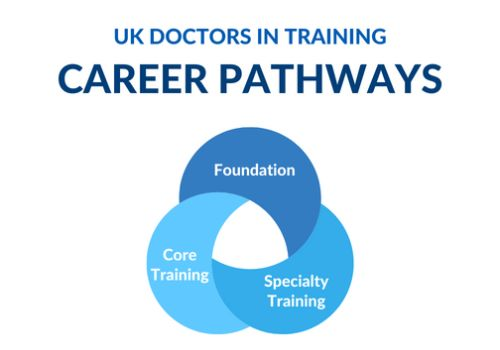
Career Pathway for a UK Doctor in Training
The NHS offers extensive training schemes and career development for all of its doctors, and such programmes are recognised as a gold standard across the medical world.
Training in the NHS is always in keeping with advances in medical sciences and the progressive landscape of the medical profession, including the more complex ailments of a growing and ageing population. The NHS frequently updates and develops its training programmes, making them attractive to UK graduates and doctors, as well as overseas doctors seeking the very best training.
In this article we will cover the following topics:
The NHS Training Pathway
Graduation to Foundation Training
Specialty Training Programmes
Different types of Specialty Training programmes
Completion of Specialty Training Programme
Should I apply for a training or service post?
As an IMG, can I get onto the specialist register?
How do I secure a service post?
Skip ahead to the relevant section if you know what you're looking for.
The NHS Training Pathway
Many IMGs looking to move to the UK (particularly more junior doctors) will be keen to enter into UK Specialty Training at some point, and as such it is important to understand the UK training pathway from start to finish in order to map your NHS career effectively.
Furthermore, greater understanding of the NHS structure and training offered to doctors in the UK will help an IMG to understand at what grade they can likely enter the system and the salary most appropriate for them.
The NHS Training Pathway describes the journey from medical school to completion of specialist training and is the path most commonly followed by UK trainees.
Graduation to Foundation Training
After graduating from a medical school, doctors gain provisional registration with the GMC allowing them to enter the Foundation Programme - a two-year work-based training programme.
Upon completion of the first year (FY1 or F1) doctors will gain full registration with the GMC and can apply for further study and training in a specialised area – known as Core or Specialty Training, depending on the specialty.
Specialty Training Programmes
Completion of the Foundation Programme allows doctors to apply for Specialty Training in an area of medicine or general practice. There are 60 different specialties to choose from.
A doctor entering year one of Specialty Training is known as an ST1 or CT1 doctor.
Specialty Training programmes can take between three and eight years depending on the specialism chosen.
Doctors can pass through the training quicker depending on how fast they achieve their competencies.
Sometimes doctors do not complete the training pathways in the indicated time for a variety of reasons and it can take between 1 - 4 years longer than indicated in the curricula.
Types of Specialty Training Programmes
There are two different structures for Specialty Training programmes, and these vary between specialties.
Run-through Training Programmes
For these training programmes, you only have to apply once at the beginning of the programme. This is because you are recruited for the full duration of Specialty Training.
These training programme can last from approximately three years for general practice, to five or seven for other specialties such as histopathology.
Uncoupled Specialty Training Programmes
These programmes are split into Core Training and Higher Specialty Training.
Core Training lasts for either two or three years and once complete, allows you to apply for Higher Specialty Training, which can take from three to five years.
Overall, Specialty Training programmes can take anywhere from 5 – 8 years in their entirety, depending on your medical specialty, for example 6 years for psychiatry.
Doctors are known as ST1-3 or CT1-3 during their Core Training and ST4+ level during Higher Specialty Training programmes.
Higher Specialty Training programmes are very competitive, and completion of a UK Core Training programme does not guarantee a Higher Specialty Training post.
Completion of Specialty Training Programme
Upon successful completion of either a run-through or coupled training programme, doctors are awarded a Certificate of Completion of Training (CCT).
At this point doctors are able to make an application for Specialist Registration (or GP Registration) and are able to take up permanent consultant posts.
Training Positions vs Service Posts
As above, competition for places on training programmes within the NHS is very high. As such, we advise that IMGs who are interested in entering core or specialty training in the NHS first obtain a service post for 1 – 2 years.
Following this contract, you can apply for a training post, for which you will be given priority. Not only will this approach give you the best chance of securing excellent training and career progression opportunities in the NHS, it will also give you the chance to settle in to the UK and the NHS system, and help you understand the training post that will suit you the most.
Service posts also offer very competitive rates, so whilst you are getting to know the NHS and settling into life in the UK, you can also ensure that you are financially rewarded.
Specialist Registration for IMGs
IMGs that enter the UK training programmes later on and have not completed the full programme can still get on the specialist register via the CESR-CP route (Certificate of Eligibility for Specialist Registration via a Combined Programme)
Check to see if you're eligible for CESR-CP via the GMC website or read through our detailed blog through our IMG Resources library.
Secure a Trust Doctor Post (with the view to securing a training post at a later date)
You can apply for Trust Doctor or Service Role online via the NHS Jobs website.
However, working with IMG Connect can offer more jobs than are available online with the added benefit of an IMG Consultant speaking directly with services on your behalf to expedite the process and negotiate the best doctor salary for you.
Getting started
Read more useful articles on finding an NHS trust doctor job, training pathways, doctor salaries in the UK, relocation and much more!
Don’t hesitate to get in touch with our team to learn more about the opportunities available to you once as an IMG new to the UK.
For the latest news and updates, including the Royal College, GMC registration and the NHS, follow us on social media and join the conversation:
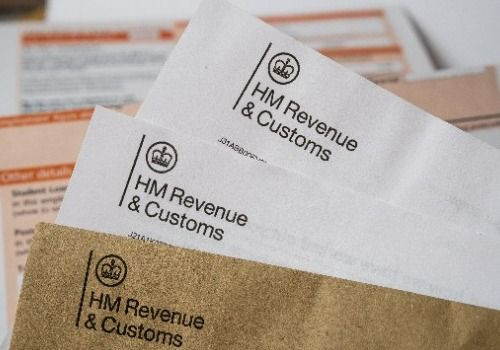
UK Taxation – how much tax will I pay as an NHS doctor?
As an NHS employee, you will pay Income Tax and National Insurance on your wages through the PAYE system.
Overseas doctors will have tax and national insurance automatically deducted from their monthly salary. How much deducted depends on how much you earn.
PAYE stands for Pay As You Earn.
Some income is tax-free. You can earn a certain amount of income each year, called your Personal Allowance, before you need to pay any Income Tax.
The personal allowance is a fixed amount set against your gross income.
In all four UK countries, the Personal Allowance is set at £12,500 (tax-free income). It is worth noting that if you earn more than £125,000 you will not receive a personal allowance.
The Personal Allowance will also be set at £12,500 for 2020/21.
Any pay above the personal allowance is then taxed according to your salary and pension.
Tax bands in England, Wales & Northern Ireland
Band
Taxable income
Tax rate
Personal Allowance
Up to £12,500
0%
Basic rate
£12,501 to £50,000
20%
Higher rate
£50,001 to £150,000
40%
Additional rate
over £150,000
45%
How much you pay is fixed as a percentage according to a band system. In Scotland the tax bands vary from those set in England, Wales and Northern Ireland, see below:
Tax bands in Scotland
Band
Taxable income
Scottish tax rate
Personal Allowance
Up to £12,500
0%
Starter rate
£12,501 to £14,549
19%
Basic rate
£14,550 to £24,944
20%
Intermediate rate
£24,945 to £43,430
21%
Higher rate
£43,431 to £150,000
41%
Top rate
over £150,000
46%
You can check that you are paying the right amounts using this online government tool. This will allow you to check the following your Personal Allowance and tax code are accurate. As well as helping you to understand how much tax you’ve paid in the current tax year and how much you’re likely to pay for the rest of the year. Your NHS employer will set your salary, and you will be automatically set up to pay your pension, tax and national insurance. However, at IMG Connect we think that it’s important to check you have the right tax code and are paying the right amount.
Can I make any more savings?
You will get tax relief on your pension payments. The NHS pension scheme is an attractive one, with very few schemes in the UK even coming close to this benefit. Find out more about your NHS benefits here.
Getting started
For more information on NHS doctor benefits and pay arrangements in the UK, take a look at our IMG Resources library.

Trust Doctor Jobs in the NHS
NHS trust doctor jobs are paid well with numerous posts available across the UK.
Trust doctors are employed by the NHS in service posts, and therefore for training purposes only are not regulated by Royal College or Deanery. They are an attractive way for both the NHS and IMGs to ensure doctors are secured into posts quickly. The work of a trust doctor is often indistinguishable from that of a training post, and can therefore be an attractive option for trusts, paving way for the recruitment of overseas doctors.
In this article will explore the both, with particular focus on service jobs. We will include the following topics:
What is a trust doctor?
Could I take a training post instead?
What are the benefits of a trust doctor job?
How do I secure a trust doctor job in the NHS?
What is a trust doctor?
Trust doctor jobs in the NHS cover a range of grades and apply to all specialties. It is a term applied to a doctor who is working in the NHS in a non-training post.
Typically, the title trust doctor is applied to a doctor working at Senior House Level (FY1 & 2), however the term has now become synonymous with all grades.
It is now a term most commonly applied to doctors from FY1 to ST3, but can be applied to specialty doctors by some trusts.
Trust doctors work in career posts without specialist recognition, but often doctors doing service level jobs secure an ‘approved post’ and complete specialist training, others continue to progress using their experience as the platform.
Many of the doctors accepting service posts are from overseas, this can be a quick way to enter the NHS system and start your career in the UK.
Could I take a training post instead?
Yes, training posts in the NHS are very attractive. However, competition for places on training posts within the NHS is highly competitive.
As such for IMGs interested in securing a place on a training post in the NHS, we advise that IMGs obtain a trust doctor or SAS doctor post, depending on experience, for 1 – 2 years. Following which you will be able to apply for a training post, for which you will be given priority.
Not only will this approach give you the best chance of securing excellent training and career progression opportunities in the NHS, it will also give you the chance to settle in to the UK, get to know your trust better, and help you understand the training post that will suit you the most.
Trust doctor posts also offer very competitive rates, so whilst you are getting to know the NHS and settling into life in the UK, you can also ensure that you are financially rewarded
What are the benefits of a trust doctor job?
No matter what grade you are working at, there are benefits to a trust doctor role.
Less competition and route to more training
The majority of IMGs are keen to enter training pathways at some point, but competition for these positions is very high. Places are offered to UK based applicants first, then EEA followed by Non-EEA applicants.
As such, it can be difficult to get a training post when applying for your first NHS role.
However, competition for trust doctor roles are not nearly so competitive and can lead to successful applications for training programmes.
Quicker route to securing your first post
For overseas doctors applying for trust doctor posts, as opposed to a training post, the process can be quicker. Less competition and a high demand for doctors will ensure that IMG Connect can secure you interviews quickly.
Financial reward
Trust doctor jobs typically offer competitive salaries, with some harder to fill locations able to offer additional incentives. Speak with your IMG Consultant for more information.
Allowing you time to settle into the UK and NHS
Taking a trust doctor role can be a great way to allow yourself time to settle into your new job and enjoy living in the UK. By taking on a new culture, employer and healthcare system all at once, you may feel more comfortable taking on a service post avoiding all the extra commitment and learning associated with a training role.
More patient focused roles and less responsibility
Trust doctor posts are usually more focused on meeting NHS service requirements compared to trainee roles. Many doctors simply prefer a role where they can spend more time with patients, without the pressured commitment to training, admin and competition associated with training roles. This gives you more time to do the job you love.
Balance between work and personal life
When taking a service post such as a Trust doctor post, additional working hours and on call commitments can be optional. You will also be given the option to increase your overall hours through weekend and shift work, which will increase your overall take home pay. In most circumstances it is up to you how you want to approach balancing a life at home with work commitments & financial rewards.
Freedom to consider all parts of the UK
Entering a training post is not only a commitment to the programme over a number of years, but also the geographical location that the deanery covers. By taking a trust doctor service role instead, you could complete a one-year contract and relocate to a different part of the UK altogether after completing the contract.
REGISTER TODAY TO DISCUSS TRUST DOCTOR VACANCIES IN YOUR SPECIALISM
How do I secure a trust doctor job in the NHS?
There are many reasons why a trust doctor job can be a great option for IMGs when considering their first NHS post and it is clear that service doctors are vital to the day to day running of the NHS.
Of course, many doctors will be keen to get straight onto the specialty training programme, with a clear vision of achieving consultant status. The NHS training programme is recognised the world over for its quality and innovation and as such places are at a premium.
Regardless of the route you wish to take, IMG Connect will support any doctor pursing either path and can offer guidance and advice throughout either process.
IMG Jobs
Search and find live NHS doctor jobs in the UK
IMG Resources
Read more useful articles on finding an NHS trust doctor job, pay scales & doctor’s salary in the UK, relocation and much more!
Get in Touch
Get in touch using the buttons above (and below) to discuss doctor job opportunities in the NHS, including discussions regarding a typical doctor salary in the UK and the most suitable hospital locations for you.
Follow us on social media for news and updates on GMC registration, the Royal College and NHS through the links below:

Specialty Doctor posts with CESR support
Hospitals across the UK are offering specialty doctor job plans with opportunity for CESR programmed support, giving doctors the chance to quickly work towards specialist registration.
For experienced IMGs this is a new and quick route to your first Consultant post. By taking up a service level job as a Specialty Doctor with CESR support as part of the job plan many IMGs are securing a great start to their future career in the NHS that is suited to their senior level experience.
If you are an overseas doctor looking for a Specialty Doctor job with the chance to work towards your Certificate of Eligibility for Specialist Registration (CESR), speak to the IMG Connect team to discuss if this is a suitable route for you. We have opportunities across the UK for doctors to take advantage of the CESR programme.
You can also send your CV to info@imgconnect.co.uk or register here. It takes 30 seconds to register!
By taking such posts in NHS trusts and hospitals you can join diverse, dynamic and inspiring groups of specialty doctors and acting Consultants all on the way to achieving their CESR as part of a tailored programme. In offering such job opportunities, hospitals will provide a supportive environment with protected time to fulfill all the requirements of the CESR application, gaining career-enhancing experiences as you do.
Acting up, dedicated peer groups, coaching & mentoring, scheduled learning and study time are some of the benefits that you could receive.
In such roles you will typically receive hands on support from consultant colleague and exposure to a wide range of experience to specifically aid competency achievement for your CESR application.
In some specialty doctor jobs with CESR programme you will rotate through various departments, dependent on your required experience.
Some hospitals will also provide the following as part of the CESR programme:
Supported Professional Activity (SPAs) sessions per week
Tailored experience to your CESR portfolio
Regular clinical supervision
A CESR mentor
Involvement in academic programme and medical student teaching
Support in gaining research competencies
SAS Tutor support
CESR / SAS support forums and meetings
IMG Jobs
Search and find live NHS doctor jobs in the UK with CESR
IMG Resources
Read more useful articles on finding an NHS trust doctor job, pay scales & doctor’s salary in the UK, relocation and much more!
Get in Touch
Don’t hesitate to get in touch using the buttons above (and below) and chat with an IMG consultant to discuss the CESR job vacancies in the NHS and start your journey towards specialist registration and your first consultant post in the NHS.
To receive the latest news and updates, including the Royal College, GMC registration and the NHS, follow us on social media and join the conversation.

Training, Development & Career Progression in Emergency Medicine
One of the main reasons that overseas doctors want to work in the Emergency Medicine departments across the UK, is the excellent opportunity for access to training such as the Specialist Training Programme, career progression, including CESR, and sub-specialty development.
This short article provides useful information on the training and development available, how to access the training, the best route to becoming a consultant in the UK with entry to the specialist register, no matter what stage of your training.
Emergency Medicine Training, leading to CCT
We start with an overview of the Emergency Medicine Training in the NHS. Trainees may enter the emergency medicine training programme via:
The EM (Emergency Medicine) core training programme at ST1. This is a three-year core training programme (starting from ST1 and ending at ST3).
For the first two years, trainees will spend 6 months in EM, Intensive Care Medicine, Anaesthetics and Acute Medicine. This is followed by a further year in trauma and paediatric EM.
The start of specialty training (ST4-6) subject to having achieved the necessary competences required for completion of ST3.
Once ST6 is completed, then a doctor will be added to the specialist register for medicine and hold the title of CCT. This means that they can apply for and practice at a consultant level in the NHS.
CESR
For senior Emergency Medicine doctors (experienced specialty doctors, consultants and heads of departments) there is also the option of CESR. You can apply directly for CESR from overseas, or secure a post in the NHS with CESR support and complete your application in the UK. This is a good option for those wanting to take up their first role in the NHS as a specialty doctor (leading to consultant) or as a locum consultant.
Applying from abroad can be lengthy, and it is certainly not the quickest route towards specialist registration. Most IMGs prefer to secure a post with CESR support, so speak to your IMG Consultant to learn more about the best route to the UK for senior doctors seeking consultant jobs in Emergency Medicine.
Most senior Emergency Medicine job vacancies advertised will offer support with CESR, access to training and career progression, and senior managers will encourage you to develop your own professional interests.
Emergency medicine departments in the NHS are particularly supportive of doctors seeking to develop both personally and professionally. To find out what jobs are on offer take a look here.
If you think that a Specialty Doctor post with CESR support is suited to you, or if you are a consultant or head of department, then you can find out more information here.
For further advice on how to secure the right job for you in the NHS, take a look at our the following article.
IMG Jobs
Search and find live emergency medicine NHS doctor jobs in the UK
IMG Resources
Read more useful articles on finding an NHS trust doctor jobs, doctor salary & relocation for emergency medicine specialists
Get in Touch
Don’t hesitate to get in touch using the buttons above (and below) to see what Emergency Medicine job opportunities there are for you, including access to CESR support, Core and Specialty training.
For the latest news and updates on all things emergency medicine, including the Royal College, GMC registration and the NHS, follow us on social media and join the conversation.
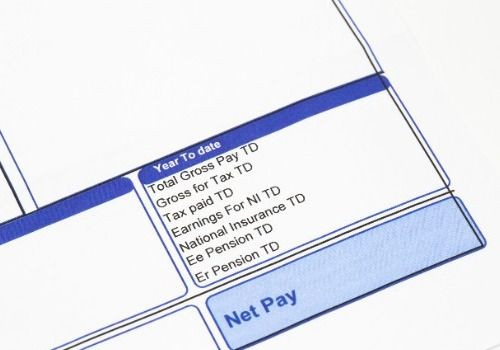
What NHS employee benefits can I expect?
Salary & employee benefits are important considerations when applying for jobs in the NHS.
The NHS is one of the most developed health systems in the world and doctors form an integral part of delivering high quality patient care. As such doctors are rewarded with competitive pay rates and benefits, some of which will not be afforded to you in other countries across the world. In this article we will discuss the NHS employee benefits, covering the following topics:
Annual leave
Pay enhancements
Personal development & career progression
Sick leave
Maternity leave
Paternity leave
Parental leave
NHS pension
NHS discounts
Doctors in training
Study leave
Study budget
Study sessions
Part-time training
The doctor salary package in the UK, including benefits, can as a whole, make working for the NHS an attraction for many overseas doctors.
Whatever grade or specialty you join, you will become an integral part of the NHS and as such enjoy one of the most competitive packages offered by a UK employer.
Everyone who works in the NHS is guaranteed an annual salary matched to their role, and even better are afforded the opportunity to increase this year-on-year through additional responsibilities and training & development.
All staff will receive an attractive annual leave package in addition to a range of benefits.
Annual leave:
You are entitled to be paid annual leave every year, the amount of annual leave you receive will increase depending on your level of service within the NHS.
You will also receive an additional 8 days of bank holidays.
The longer you work in the NHS, the more annual leave you get.
The table below summarises the current entitlement:
Length of service
Annual leave entitlement
0-5 years
27 days + 8 days bank holidays
After 5 years
29 days + 8 days bank holidays
After 10 years
33 days + 8 days bank holidays
Pay enhancements:
Pay enhancements reward out of hours working, shifts, overtime and on calls. This means that you can enhance your take home pay each month.
Personal development & career progression:
Each member of staff is given an annual review focused on their own progress and development designed to support their career aspirations.
Sick leave:
Sick days will not be deducted from your annual leave days. If you are unfortunate enough to get sick during annual leave, you may also be able to claim it back so you can use the annual leave another time.
Maternity leave:
Regardless of how long you’ve been working in the NHS, all pregnant employees are entitled to 1-year maternity leave. It is illegal for your employer to fire you during this time. Depending on how long you’ve been working in the NHS during pregnancy, you may also be entitled to maternity pay.
Paternity leave:
Fathers are entitled to 2 weeks paternity leave. This applies to same-sex partners as well as nominated carers for single mothers.
Shared parental leave:
The 1-year maternity leave can in some cases be shared between the parents.
Parental leave:
You are also entitled to 18 weeks parental leave for each child until your child reaches 18 years of age.
Some weeks may be paid, but most of this leave is unpaid.
This is particularly useful for IMGs as it can be used for various things to ensure that your family is cared for and settled into life in the UK. For example, you can take agreed parental leave for things such as helping your child settle into school, if sick, staying with them in hospital, or just to spend more time with your children when you feel it is necessary.
NHS pension:
The NHS Pension is a good scheme when compared with other private pensions available both in the UK and worldwide. In the current financial market, we have found it hard to find a better one, it is generous and an excellent package overall.
All new permanent employees are automatically enrolled in the NHS Pension scheme.
NHS discounts:
A useful range of discounts for NHS employees are available with many shops and services. Don’t forget to ask any shop, restaurant, hotel or any service whether they offer discounts to NHS employees. You will be pleasantly surprised how many do, and can save a lot of money when taking holiday breaks in the UK, or shopping trips.
Doctors in training:
Doctors in training will receive the following additional benefits:
Study leave:
Trainees from FY2 and above will have an entitlement to receive paid study leave. For trainees this is usually 30 days per year with the majority allocated to compulsory teaching sessions provided by the training programme, and 10 days for the trainee to decide what to do with.
Study budget:
Trainees will have access to a small amount of money to attend courses and conferences. It usually does not cover all the expenses, but it undoubtedly helps.
Study sessions:
It is important to note that this is not the same as study leave, instead trainees will have a half day or 2 half days a week for study which can be used to work on audits, presentations, publications and research.
Most IMGs typically use study leave to attend courses, conferences, and study for exams.
Part-time training:
If you need to reduce your hours in order to balance work and other commitments like caring for children or an elderly family member, you can request to complete your training part-time. This is known as “less than full time training” or LTFT training.
The least you can work is 50%, remember this will mean you will take twice as long to complete your training.
Your annual pay with LTFT training will be considerably less than a full-time job. For IMGs it is important to note that this may have implications whilst working on a Tier 2 visa where you generally need to earn more than £30,000 per year.
For the full terms and conditions of working in the NHS, please read through the employee handbook.
IMG Jobs
Search and find live NHS doctor jobs in the UK
IMG Resources
In our IMG Resources library you can read more useful articles on finding an NHS trust doctor job, pay scales & doctor’s salary in the UK, relocation and much more!
Get in Touch
Get in touch using the buttons above (and below) to discuss doctor job opportunities in the NHS, including discussions regarding a typical doctor salary in the UK and the most suitable hospital locations for you.